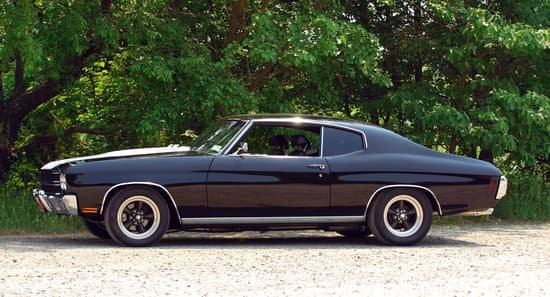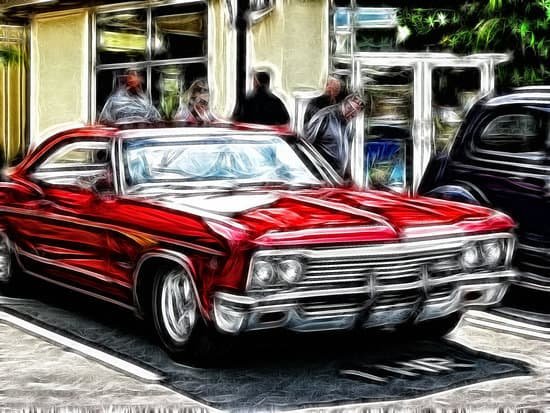If you’re looking for a ride that offers power and style, you have no shortage of options. But when it comes to Muscle Cars and Sports Cars, there are some distinct differences that set them apart.
Muscle cars are all about power. They boast powerful motors and lots of torque to give an exhilarating driving experience. These cars typically feature large engines and rear-wheel drive for maximum acceleration. The classic muscle car look includes bold colors, big wheels, and long hoods with chrome accents.
Sports cars on the other hand offer agility and precision along with speed. They have smaller engines than muscle cars, but they make up for it with advanced engineering features like lighter materials and suspensions designed for sharp handling. Plus they often have higher-tech engines, sophisticated all-wheel drive systems and sleek aerodynamic designs.
Whether you’re looking for the brute force of a muscle car or the agility of a sports car, one thing is certain – there’s something out there that will satisfy your need for speed! With so many options available, it’s up to you to decide what kind of ride fits your style.
What Is a Muscle Car?
“Muscle cars are large, powerful vehicles that usually have a V8 engine and rear-wheel drive,” explains avid collector Michael Savage of New Canaan, CT. “They’re built for speed and power and often feature bold styling with performance parts like hood scoops, spoilers, and big exhaust pipes.”
These iconic muscle cars were born during the 1960s as domestic automakers competed to create bigger and better machines in an effort to out-muscle their rivals on the drag strip.

One of Mike Savage’s favorite classic muscle cars.
What Are the Primary Features of a Muscle Car?
A muscle car is all about power and performance. It typically has a large, powerful engine with an impressive torque rating and horsepower. Muscle cars also have a tough exterior design, meant to get attention on the road. They are often loud and flashy, making them stand out from the crowd.
On the inside, muscle cars feature comfortable seating for two or four people depending on the model. The interior is usually quite basic, featuring manual controls and no frills features such as power windows or navigation systems.
When it comes to driving dynamics, muscle cars provide an exciting ride experience due to their high-power engines and lightweight bodies. Many models feature rear-wheel drive which allows them to deliver incredibly responsive acceleration when put to the test.
But don’t take my word for it, celebrate the muscle car culture with the enthusiasts and car clubs.
What Is a Sports Car?
Sports cars represent the pinnacle of performance driving. While there isn’t one specific definition of what makes a car a sports car, generally speaking they are lightweight, agile, aerodynamic vehicles designed for spirited road or track driving. They usually have smaller engines than muscle cars, but they make up for it with advanced engineering and design features that improve their performance.
What Makes a Sports Car Different?
In comparison, sports cars are designed for performance and agility on the track. While they may not have as much raw power as muscle cars, they offer superior handling thanks to their low center of gravity and lightweight construction.
Sports cars also feature more modern design features inside and out with plenty of luxury touches such as leather seats and advanced infotainment systems. Driving dynamics also tend to be better in a sports car due to its lower weight and all-wheel drive system which helps provide better grip around corners.
Although both muscle cars and sports cars can provide an exciting ride experience, their main differences lie in style, power delivery, and driving dynamics. Muscle cars deliver raw power and a classic look but lack the agility of a sports car while sports cars can be more refined but often don’t offer as much outright power. Ultimately, it comes down to personal preference and how you want your car to perform.
It’s clear that muscle cars and sports cars are two completely different types of vehicles with distinct benefits and drawbacks. If you’re looking for an exciting ride experience, both offer something unique to enjoy behind the wheel!
The Verdict
When deciding between a muscle car or a sports car, there’s no easy answer. Both vehicles offer powerful performance in their own way, so it comes down to personal preference. If you want brute force and a classic look, then go for the muscle car.
But if you prefer precision handling and modern styling, then the sports car is for you! No matter which one you choose, these speedy machines are sure to put a smile on your face every time you get behind the wheel.
People Also Ask
What is a muscle car?
A muscle car is a high-performance, American-made car typically characterized by its powerful V8 engine and sleek, aggressive design.
What’s the difference between a muscle car and a sports car?
Muscle cars prioritize straight-line speed and acceleration, while sports cars focus on handling and agility. Muscle cars often have larger engines and are known for their drag racing capabilities.
When did the era of muscle cars begin?
The era of muscle cars is generally considered to have started in the mid-1960s and peaked in the early 1970s. This period gave birth to iconic models like the Ford Mustang, Chevrolet Camaro, and Dodge Challenger.
What are some famous muscle car models?
Prominent muscle car models include the Chevrolet Camaro, Ford Mustang, Dodge Challenger, Pontiac GTO, and Plymouth Road Runner.
Are muscle cars only produced by American automakers?
While muscle cars are closely associated with American automakers, other countries have produced their own high-performance models. However, the term “muscle car” is most commonly used in the context of American cars.
What makes a muscle car’s engine special?
Muscle cars are known for their large-displacement V8 engines that produce substantial horsepower and torque. These engines are designed for maximum power and acceleration.
Are muscle cars fuel-efficient?
No, muscle cars are not typically fuel-efficient due to their powerful engines. They prioritize performance over fuel economy, which means they often have lower miles per gallon (MPG) ratings.
Do muscle cars have modern safety features?
Many modern muscle cars come equipped with advanced safety features such as anti-lock brakes, traction control, airbags, and electronic stability control. However, the focus is still on performance.
Are muscle cars suitable for everyday driving?
While muscle cars can be used for daily commuting, their aggressive performance characteristics may make them less practical for some drivers. They excel on open roads and racetracks.
Are vintage muscle cars expensive to maintain?
Maintaining a vintage muscle car can be costly, as finding original parts and keeping the engine in peak condition can be challenging. However, enthusiasts often find the investment worthwhile for the joy of owning and driving a classic muscle car.
About Mike Savage, New Canaan, CT Resident
Michael Savage of New Canaan is the CEO of 1-800 Accountant, a virtual accounting firm that is redefining small business accounting services through innovative technology. Mr. Savage is responsible for detailing the company’s vision and strategy. Mike was a 2018 recipient of the Glassdoor Top CEOS award.
In his spare time, Savage enjoys creating unique koi ponds, collecting Michael Jordan sneakers, vintage Lego sets, and admiring muscle cars and unique pop art. He and his wife also spearhead the Savage-Rivera foundation to help impoverished families in Honduras.
